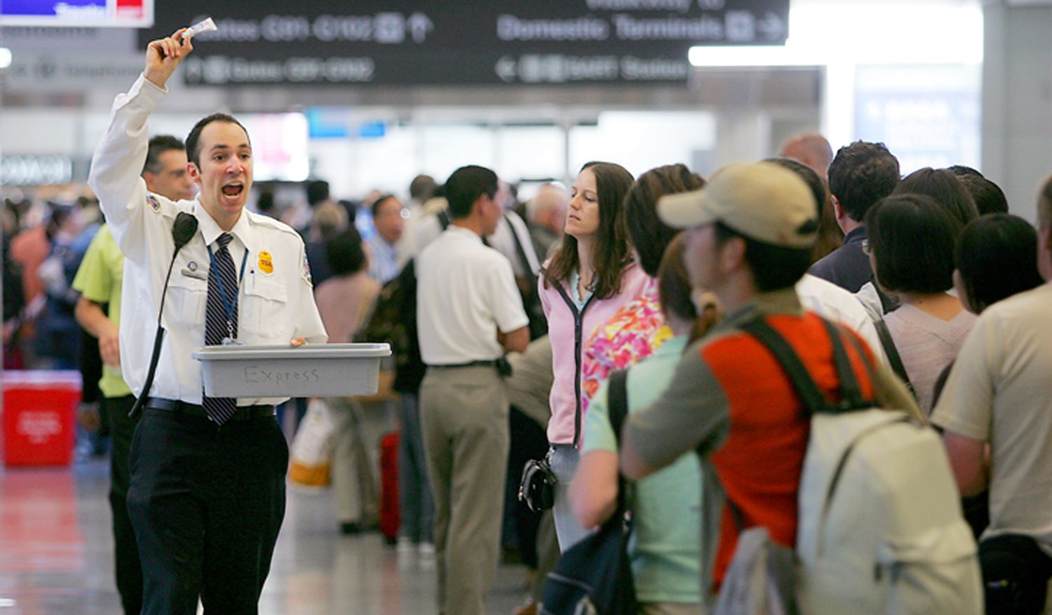With regularity we’re greeted with stories involving the TSA and some sort of infraction of the law concerning prohibited items, especially with those items in carry-on’s. I’ve covered before how the TSA equates firearms to violence, as well as their hubris attitudes towards those that make simple mistakes. One rare occasion I covered a story where the TSA actually exercised prudence and real commonsense in dealing with a “situation”.
Bringing firearms on a plane on one’s person or carry-on bag is prohibited. We all know this. But what happens when someone inadvertently brings their arm to, and gets caught with it, in a sensitive area at the airport is something that we could debate. Representative Bonnie Watson Coleman has us covered, at least in her mind. She’s introduced a bill that’s going to address this. But not in the ways many reading this would agree with.
On February 28, 2022 Coleman, the lawmaker from República de Nueva Jersey, introduced H.R.6856 – Securing Air Travel Act. The bill aims to create a public information campaign, which isn’t necessarily a bad thing, but also seeks to impose serious civil penalties in thousands of dollars. Of course, this is supposed to keep us safer, according to Coleman.
Today, the House Committee on Homeland Security will consider H.R. 6856, the Securing Air Travel Act introduced by Congresswoman Bonnie Watson Coleman (NJ-12) chair of the subcommittee on Transportation and Maritime Security. This act would establish minimum monetary penalties for repeat and egregious violations of the prohibition on firearms at Transportation Security Administration (TSA) checkpoints.
Last year, TSA intercepted nearly 6,000 firearms at checkpoints – an 83% increase over the previous year. The number of firearms caught at checkpoints has doubled on a per-passenger basis since the beginning of the COVID-19 pandemic, reaching its highest rate in the agency’s 19 year history. Although the imperative of preventing a hijacker from boarding a plane with a firearm is self-evident, even routine firearm encounters at checkpoints stretch limited law enforcement resources, while endangering the public and transportation personnel.
“We need to explore a range of solutions to keep guns off planes and away from TSA checkpoints,” said Watson Coleman during a subcommittee hearing earlier this month.
The Securing Air Travel Act will address these issues by establishing minimum civil penalties for repeat or egregious violations and restrict PreCheck eligibility for those individuals. The bill will also require airports to display prominent signage, strengthen TSA’s efforts to inform the public of potential consequences, and provide Congress with regular reports on the implementation of the legislation.
H.R. 6856 is co-sponsored by Committee Chairman Bennie Thompson (MS-2).
I get it, I really do. It’s difficult to “explain away” how someone ends up at the TSA security checkpoint with their firearm. I do. But I also remember my father back in the mid 2000’s heading to the TSA checkpoint, patting his pockets, realizing he had left a pocketknife in his pocket. Not knowing what his best recourse would be, he took the knife, an old-timer three blade Buck knife which he got from my Great Uncle Buster after he passed away, and threw it in a trash can as he headed up to the screening area. Dad easily forgot the knife was on him because that was part of his every day routine.
I will 100% concede that a gun and a knife are different. I’ll also point out that knives in the form of box cutters were utilized to turn four commercial aircraft into missiles and were used to kill thousands of Americans. I’m sure if we dig around a little we can find a story somewhere that a firearm was past a TSA checkpoint in a “sterile” area, and was used maliciously, however if we’re going to #NeverForget, then remember it was knives that brought the world to a halt and this country to its knees that fateful day. While we’re #NeverForgetting, remember our members of Congress singing on the steps of the capitol together that night just over 20 years ago, unified.
Everyday carry is everyday carry. Regardless of what the item is, people are conditioned to do what they do over and over again. This is where I think we can find some outside of the box solutions rather than what Coleman suggests. From the bill text we can glimpse at how much moolah ole Bonnie thinks these repeat offender Clides carrying firearms should have to pony up.
“(1) in the case of an individual with respect to whom such a repeat violation occurs within five years of the date of the final adjudication of a previous such violation—
“(A) $10,000 for any such repeat violation involving an unloaded firearm; and
“(B) $12,500 for any such repeat violation involving a loaded firearm or unloaded firearm with accessible ammunition; and
“(2) in the case of an individual with respect to whom such a repeat violation occurs more than five years after the date of the final adjudication of a previous such violation—
“(A) $5,000 for any such repeat violation involving an unloaded firearm; and
“(B) $10,000 for any such repeat violation involving a loaded firearm or unloaded firearm with accessible ammunition.
How about so-called “egregious” violations?
“(1) $10,000 for any knowing violation in the case of a deliberate attempt to conceal such firearm; and
“(2) $5,000 for any violation which the Administrator of the Transportation Security Administration determines is otherwise egregious, including if the firearm at issue—
“(A) is known to the Administrator to—
“(i) not contain a serial number when required by law; or
“(ii) have been manufactured using additive layer manufacturing (commonly known as ‘3-D printing’); or
“(B) is—
“(i) of a nature or type that poses a greater risk to aviation security than firearms typically identified at passenger screening checkpoints; or
“(ii) identified with ammunition that is of a nature or type that poses a greater risk to aviation security than ammunition typically identified at passenger screening checkpoints.
There we go again, as if a firearm without a serial number is more dangerous, or one that was 3D printed, or one that would be extra deadly because it “poses a greater risk to aviation security”, including ammunition. They’re extra dangerous!
Coleman was on the right track with suggesting information campaigns and signage. What’s wrong with educating people or offering reminders to them to think about what they may or may not have on their person?
Instead of treating people that inadvertently bring a firearm or ammunition into the checkpoint like they’re second class citizens, why not give them options. I’d like to think Coleman can do some critical thinking and put that brain to use. Sure, some solutions might cost more money than, say putting up signs or generating revenue through her proposals, but they might be the lighter touch needed in 2022, a time when our constitutional right to bear arms is slowly being returned to the citizens, after being taken away decades ago.
Something as simple as a security pre-screen area prior to the security checkpoint can be done. An area that’s not leading to a so-called “sterile” area that’ll allow people to appropriately deal with anything they have accidently brought along with them.
How about when people are approaching the area have the TSA agent verbally remind and say to passengers they need to be vigilant about what they might have on themselves.
There are solutions to this situation and whacking people with big fines is not necessarily the way to go. When we’re dealing with a revolving door criminal justice system, where repeat violent offenders are often given “passes”, I find it hard to swallow that Coleman wants to ratchet up the punishments inflicted on otherwise law-abiding, generally speaking, background checked citizens.
Some of these opinions might not be so popular, oh well. But forgetfulness is not a crime and honest mistakes that are victimless ought to be treated that way. We have enough infringements to deal with to begin with, all measures like these do is add insult to injury.








Join the conversation as a VIP Member